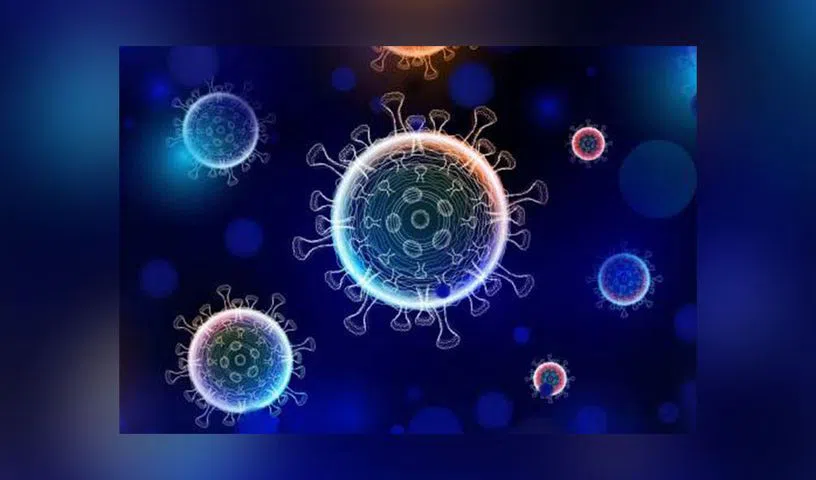
Most people with norovirus illness get better within 1 to 3 days. There is no specific medicine to treat people with norovirus illness. However, it causes severe dehydration in a person
Hyderabad: In United Kingdom, the National Health Service (NHS) has recently reported of thousands falling ill due to a notorious and contagious virus called as norovirus. Similarly, the Centre for Disease Control and Prevention (CDC) had also informed about norovirus outbreak last December.
A suspected norovirus flu has hit a cruise ship sailing through Belgium confirmed its guests showing symptoms such as vomiting and severe diarrhea.
People infected with norovirus are contagious from the moment they begin feeling ill to at least 3 days after recovery. Some people may be contagious for as long as 2 weeks after recovery.
Let’s know about this new virus – ‘norovirus.’
What is Norovirus
Norovirus is a contagious virus that causes vomiting and diarrhea. It is sometimes called the stomach flu or the stomach bug. However, norovirus illness is not related to the flu. The flu is caused by the influenza virus. Norovirus causes acute gastroenteritis, an inflammation of the stomach or intestines.
Most people with norovirus illness get better within 1 to 3 days; but they can still spread the virus for a few days after. Very few norovirus particles are needed to infect a person.
Types
You can get norovirus illness many times in your life because there are many different types of noroviruses. Infection with one type of norovirus may not protect you against other types.
Symptoms
A person usually develops symptoms 12 to 48 hours after being exposed to norovirus. The symptoms include diarrhea, vomiting, nausea, stomach pain, fever, headache, and body aches.
If you have norovirus illness, you can feel extremely ill, and vomit or have diarrhea many times a day. This can lead to dehydration (loss of body fluids), especially in young children, older adults, and people with other illnesses. The symptoms of dehydration includes decreased urination, dry mouth and throat, feeling dizzy, crying with few or no tears, and unusual sleepiness or fussiness
Who is at risk
Anyone can get infected and sick with norovirus and people of all ages get infected during norovirus outbreaks.
If eaten raw, oysters and other filter-feeding shellfish can contain viruses and bacteria that can cause illness or death. Anyone who consumes raw shellfish is at risk of contracting norovirus. Children younger than 5 years old, older adults, and people with weakened immune systems are more likely to develop severe infections.
To avoid getting norovirus, do not eat raw or undercooked shellfish.
How it spreads
Norovirus spreads very easily and quickly in different ways. You can get norovirus by having direct contact with someone with norovirus, like caring for them, sharing food or eating utensils with them, or eating food handled by them, eating food or drinking liquids that are contaminated with norovirus, touching contaminated objects or surfaces and then putting your unwashed fingers in your mouth.
You can still spread norovirus for 2 weeks or more after you feel better.
Prevention
Prevention is better than cure. Norovirus is very contagious, but you can take steps to protect yourself and others by washing your hands well and often, cook shellfish thoroughly and wash fruits and vegetables, clean and disinfect contaminated surfaces, wash laundry in hot water, stay home when sick for 2 days after symptoms stop.
Wash your hands often with soap and water for at least 20 seconds.
Treatment
Most people with norovirus illness get better within 1 to 3 days. There is no specific medicine to treat people with norovirus illness. Antibiotic drugs will not help treat norovirus infections because they fight bacteria, not viruses.
Watch for signs of dehydration (loss of body fluids) in children who have norovirus illness. Children who are dehydrated may cry with few or no tears and be unusually sleepy or fussy.
If you have norovirus illness, you should drink plenty of liquids to replace fluid lost from vomiting and diarrhea. This will help prevent dehydration.
Sports drinks and other drinks without caffeine or alcohol can help with mild dehydration. However, these drinks may not replace important nutrients and minerals. Oral rehydration fluids that you can get over the counter are most helpful for mild dehydration.
Dehydration can lead to serious problems. Severe dehydration may require hospitalisation for treatment with fluids given through your vein (intravenous or IV fluids).







